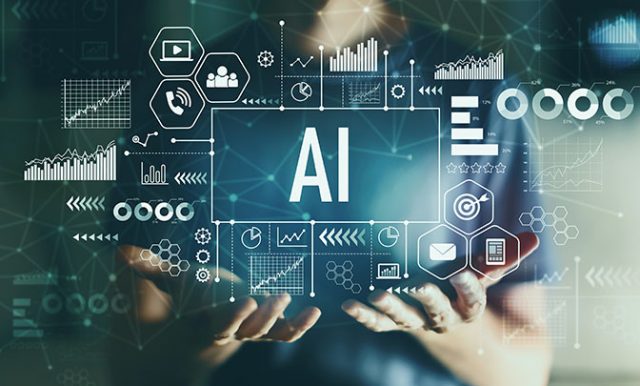Introduction
In 2024, the landscape of industries worldwide is undergoing a profound transformation fueled by the widespread adoption of Artificial Intelligence (AI). This technological revolution is not just a trend but a pivotal shift reshaping how businesses operate and how we interact with technology in our daily lives. As AI continues to evolve rapidly, its impact across various sectors is becoming increasingly evident, promising efficiency gains, innovative solutions, and new opportunities.
Industries Transformed by AI
A. Healthcare
AI’s integration into healthcare systems has revolutionized medical practices. From AI-driven medical diagnosis to personalized treatment plans, healthcare providers are leveraging AI algorithms to analyze vast amounts of patient data swiftly and accurately. This has significantly enhanced diagnostic accuracy and treatment efficacy, leading to improved patient outcomes.
For instance, AI-powered imaging technologies can detect anomalies that might be missed by human eyes, thereby enabling earlier intervention and better care.
B. Finance
The financial sector has embraced AI to bolster security measures and enhance operational efficiency. AI in fraud detection and prevention has become indispensable, as algorithms can detect patterns indicative of fraudulent activities in real-time, thereby safeguarding financial transactions and customer data.
Moreover, AI-powered predictive analytics in algorithmic trading has revolutionized market strategies, providing traders with insights to make informed decisions swiftly. This has not only optimized investment returns but also reshaped the dynamics of financial markets globally.
C. Transportation
The advent of AI in transportation is paving the way for autonomous vehicles and smart logistics solutions. From autonomous vehicles navigating urban streets to AI-driven traffic management systems, cities are becoming smarter and more efficient. These advancements not only promise safer and more reliable transportation but also aim to alleviate traffic congestion and reduce carbon emissions. Moreover, logistics companies are leveraging AI to optimize supply chain operations, ensuring timely deliveries and cost-effective routes.
D. Education
In education, AI is revolutionizing learning experiences through personalized education platforms and virtual tutors. AI-powered personalized learning algorithms adapt to students’ individual learning paces and styles, thereby enhancing engagement and academic performance. Educational institutions are also leveraging AI for administrative tasks, such as grading and course planning, allowing educators to focus more on student interaction and personalized teaching methods.
This democratization of education through AI promises to bridge educational gaps and provide access to quality learning resources worldwide.
Economic and Societal Implications
The mass adoption of AI is not just transforming industries but also reshaping economies and societies globally. According to recent forecasts, 85% of organizations are expected to adopt AI on a mass scale in the next five years, signaling a significant paradigm shift in how businesses operate and compete in the digital age. This rapid integration of AI technologies is creating new job markets, requiring specialized skills in AI development, data science, and machine learning. At the same time, it is reshaping existing job roles, emphasizing creativity, critical thinking, and problem-solving skills.
However, the rise of AI also raises important ethical considerations. As AI algorithms make autonomous decisions based on data, concerns about privacy, bias, and accountability have become paramount. Regulatory frameworks and ethical guidelines are essential to ensure responsible AI deployment, safeguarding consumer rights and fostering trust in AI-driven technologies.
Challenges and Considerations
Despite its transformative potential, AI adoption faces several challenges that must be addressed. Privacy and data security remain critical concerns, as AI systems rely heavily on vast amounts of personal and sensitive data. Ensuring robust data protection measures and regulatory compliance is crucial to mitigate risks and protect user privacy. Moreover, addressing bias and fairness in AI algorithms is imperative to prevent discriminatory outcomes and ensure equitable access to AI-driven services.
Additionally, establishing clear regulatory frameworks and governance models for AI deployment is essential to promote transparency and accountability. Collaborative efforts between policymakers, industry leaders, and technology experts are needed to establish guidelines that balance innovation with ethical considerations, fostering a sustainable AI ecosystem.
Future Outlook
Looking ahead, the future of AI promises even more profound transformations across industries. Emerging trends such as explainable AI, quantum computing, and AI-driven healthcare innovations are poised to redefine our interactions with technology. With AI’s role projected to expand, industries such as manufacturing, agriculture, and entertainment are expected to undergo significant disruptions, unlocking new opportunities for growth and innovation.
By 2030, AI is expected to become even more integrated into everyday life, revolutionizing how we work, live, and interact with the world around us. However, realizing AI’s full potential requires a concerted effort to address challenges, foster collaboration, and uphold ethical standards. Embracing AI responsibly can unlock its transformative power while ensuring that it benefits society as a whole.
Conclusion
In conclusion, the mass adoption of AI in 2024 marks a pivotal moment in human history, where technology intersects with innovation to reshape industries and societies. As businesses and policymakers navigate this transformative era, embracing AI responsibly is paramount to harnessing its full potential while mitigating risks. By fostering collaboration, innovation, and ethical governance, we can pave the way for a future where AI enhances human capabilities, drives economic growth, and promotes societal well-being.
The journey towards AI-driven transformation is ongoing, offering unprecedented opportunities for progress and innovation. As we stand on the brink of a new technological frontier, the choices we make today will shape the future of industries, economies, and societies for generations to come.








